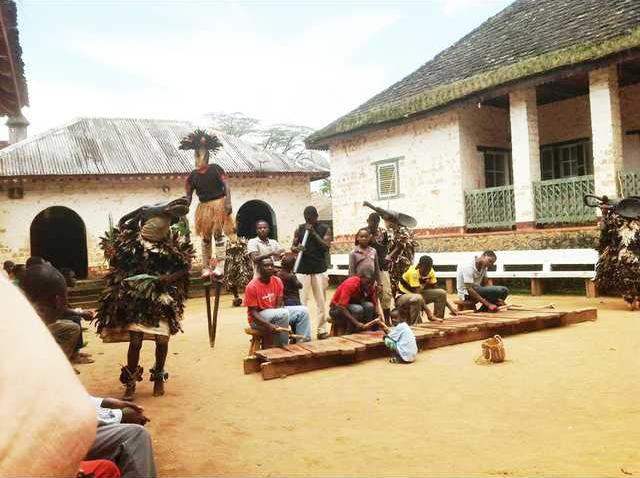With an enjoyment of adventure and a desire to serve, Dr. Randall Hildebrand recently returned from medical missionary trip to the beautiful third world country of Cameroon, Africa where the major forms of transportation are walking or motorcycle riding. The green, country side full of waterfalls was beautiful in an area that receives 10 feet of rain in six months.
“People everywhere are more alike than they are different. We all feel joy, anger, frustration,” said Dr. Hildebrand. He found the trip rewarding, and while there, performed or was involved in 81 surgeries.
Although he did not see anything new medically during his month there, what he did see were conditions more severe than he had ever seen before. There were wind swept legs, fractures that had healed improperly, injuries from motorcycle wrecks, and malnutrition. Many had seen the witch doctor prior to coming to the hospital or had waited for months to be seen.
“The people who worked in the hospital were very conscientious,” said the doctor.
Some methods were also different. Each day, chapel was held in the morning for all of the staff, and prior to each surgery, the doctors’ prayed with the patient. Although some of the Africans were Christians, there were also a large number of Muslims and some pagans.
Cameroon pulled to Dr. Hildebrand because his great uncle, Ernest Hildebrand lived for eight years in that country during the 1950s and 60s, building a hospital affiliated with the American Baptist Conference. The doctor did visit that hospital but spent most of his time at the town of Mbingo.
Some of the people received no education and there were very few cars. “For the families, everything was a struggle.”
The Africans feed their own patient in the hospital. The families camped out on the hospital lawn and cooked meals for the family member. They were also responsible for bathing the patient.
“It was an ordeal to do anything,” said Dr. Hildebrand. There were few roads and few cars. Most people road motorcycles or walked.
In addition, the patients had to pay something before they could enter the hospital, and a family member had to donate blood.
The medical needs of the patients were serious. “There were a lot of neglected issues-orthopedic things,” he said. “There was a leper ward and 10 percent of the patients had HIV. There were patients with cancer, tuberculosis, asthma and lots of ulcers.
However, “People are the same,” said Hildebrand. “They are grateful for the care and anxious when they don’t understand.”
The hospital did have some full-time physicians, missionary doctors and volunteers, but would also welcome more. They are short on medical supplies as well.
For his trip over, Dr. Hildebrand was loaded with medical supplies donated from Central Kansas Medical Center and Great Bend Regional. “They are still using white cross bandages in Cameroon,” he said. “My Mom has made white cross bandages.”
White cross bandages are sheets that have been cut up. Resources were limited, he said. Sometimes we had to stop operating at 2 p.m. even though we have patients because we had run out of gowns.
Dr. Hildebrand sons’ went for 10 days. They took 35 soccer balls, which were a hit with the Africans and came back with a new appreciation for many things. “It was a great experience for them and me,” said the doctor.
While there, Dr. Hildebrand ate a lot of beans and rice. There were no touristy things there because there is not a big tourist trade. “It’s kinda neat, authentic,” said Dr. Hildebrand.
“It was neat to use the skills I had,” he said. “I felt like I made a difference.”
He admits it expanded his horizons and gave him more awareness of other cultures.
However, “I was ready to come home,” he added.
Hildebrand does medical missionary work in Cameroon





